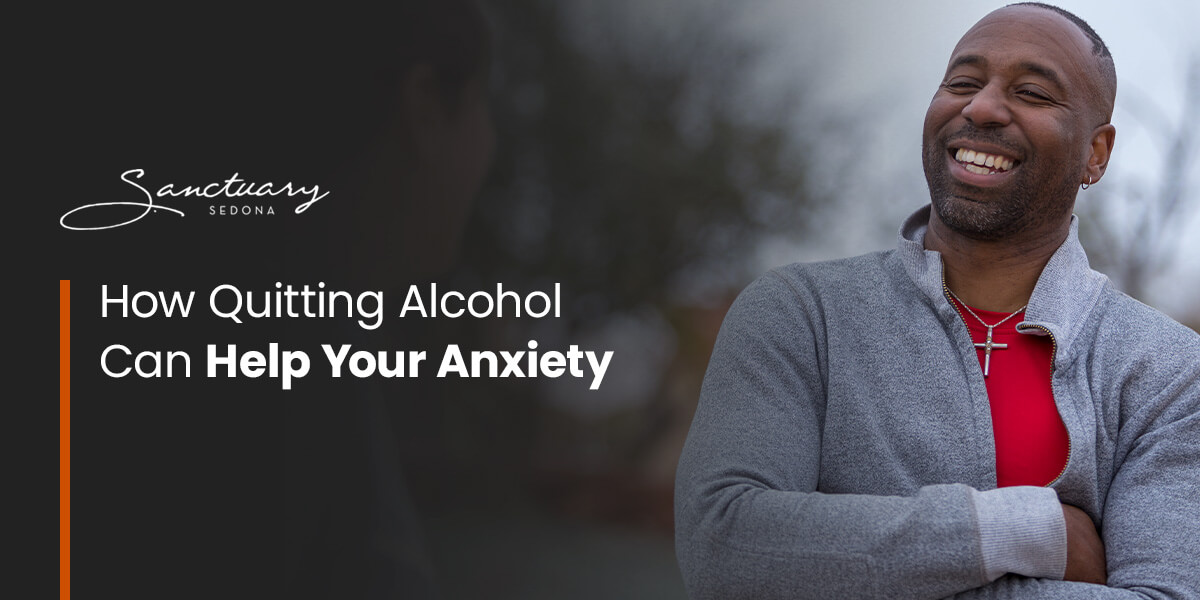Quitting alcohol can significantly improve anxiety, allowing individuals to pursue peace and healing through healthier methods. Using alcohol for anxiety relief may seem like an easy solution, but its temporary relaxing effects quickly lead to more anxiety.
Alcohol affects the brain’s neurotransmitters, causing them to gradually deplete and require people to consume more alcohol to find relief. This cycle can lead to addiction and impact a person’s relationships, career and overall well-being. The brain has the incredible ability to heal and restore emotionally-regulating chemicals, so anxiety and alcohol use recovery is possible.
If you use alcohol to alleviate anxiety symptoms, seeking dual-diagnosis treatment can help you heal and live a healthier, more fulfilling life. Holistic treatment nurtures the mind, body, soul and spirit to address the root causes of addiction and mental health conditions.
What Is Anxiety?
Anxiety is a persistent fear or worry that interferes with daily life. Individuals with anxiety may experience symptoms affecting their relationships, academic performance or work. Everyone experiences occasional fear or worry, but anxiety can heighten and prolong these feelings. Individuals with conditions such as social anxiety, generalized anxiety disorder, phobias and panic disorders can experience the following symptoms:
- Restlessness
- Fatigue
- Irritability
- Unexplained pain, such as headaches and body aches
- Abdominal discomfort
- Difficulty concentrating
- Poor sleep patterns
- Panic attacks involving an increased heart rate, sweating, chest pain
- Self-consciousness
- Trembling
- Intense fear of certain people, places, situations or objects
- Difficulty socializing or making eye contact
- Unsettling thoughts or memories
- Impaired concentration or memory
Anxiety’s symptoms stem from the body and brain’s fight-or-flight response. Anxious thoughts, emotions and physiological effects can occur when the brain notices perceived or real imminent danger.
Does Alcohol Cause Anxiety?
Alcohol can cause or increase anxiety, and anxiety and alcohol use are common co-occurring conditions. Common causes of anxiety are substance use, childhood experiences and trauma. Some individuals use alcohol to help alleviate anxiety, but this only brings temporary relief and can lead to a self-perpetuating cycle.
Alcohol heightens anxiety due to how it interacts with the central nervous system. The nervous system uses neurotransmitters such as dopamine, serotonin, norepinephrine and gamma-aminobutyric acid (GABA) to mediate anxiety, and the amygdala helps temper worry and fear. Alcohol affects GABA, temporarily stimulating its relaxing effect on the brain. While a person may feel momentary relief while drinking, heavy or frequent alcohol use gradually depletes neurotransmitters and increases anxiety.
Experiencing anxiety after drinking alcohol is known as “hangxiety.” Hangxiety refers to the heightened anxious feelings people can feel following alcohol use, and it can occur during withdrawal or a hangover. Feelings of regret after drinking alcohol can also contribute to anxious thoughts or feelings.
Using Alcohol to Cope With Anxiety
While it may not be the case for everyone who relies on alcohol, there are a number of people who use it to cope with or mask anxiety. It is common for people to feel anxious after drinking as well. This is not a healthy way of dealing with anxiety, and it must be confronted in a healthier way.
Relying on alcohol to ease anxiety becomes harder and harder as your body works up a tolerance to its effects. You will slowly need more and more alcohol to achieve the same effects, which leads to dependence and addiction.
Using alcohol as a coping mechanism will only slow down the identification and treatment of an anxiety disorder. In many cases, once treatment has begun for anxiety disorders, the use and dependence on alcohol starts to dry up.
The Alcohol and Anxiety Cycle
Alcohol increases the chemicals the brain uses to manage anxiety, reducing these chemicals after the alcohol wears off. As these chemicals decrease, a person may use more alcohol to restore relaxation and begin an alcohol dependence cycle. In this cycle, an individual may drink to ease anxiety, feel more anxiety after drinking and repeat the process to continue alleviating the discomfort. Alcohol tolerance causes a person to need more alcohol to experience the same effects each time they drink, which can lead to dependence and addiction.
Seeking treatment for anxiety and alcohol use disorder is important because the right approach can restore health, mental clarity and emotional balance. Since alcohol use and anxiety can amplify each other, addressing both conditions is essential.
How Quitting Alcohol Can Help Your Anxiety
Quitting alcohol can significantly help your anxiety by restoring your brain’s natural emotional mediators. When you avoid alcohol, your brain can produce more of the neurotransmitters the alcohol previously depleted. Ending alcohol use allows your brain to heal, helping you develop healthy habits and coping mechanisms.
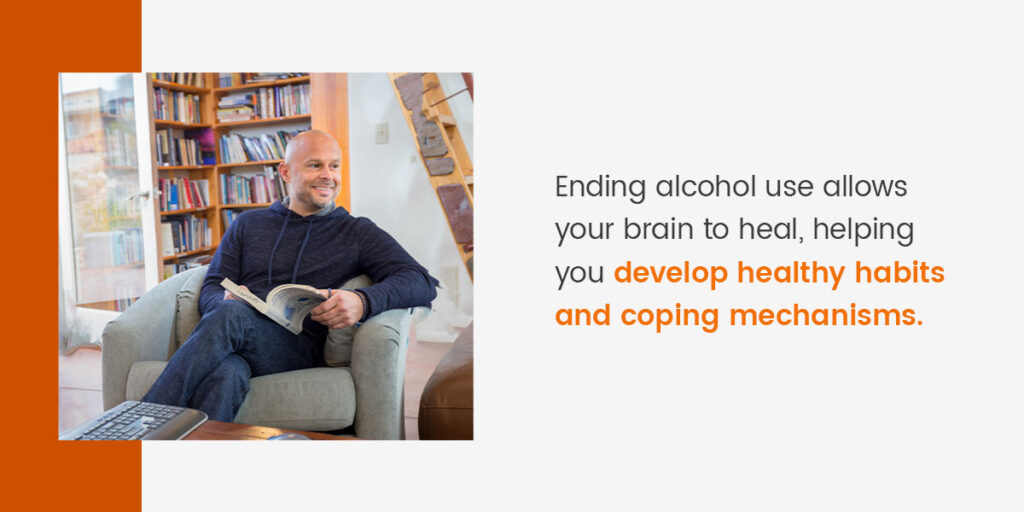
When you stop drinking, you can help restore your brain’s ability to manage emotions without alcohol. Behavioral health interventions such as treatment and therapy can help rehabilitate the brain’s stress and reward circuit activity, helping it produce more neurotransmitters naturally.
Naturally restoring neurotransmitters in the brain can help you experience peace, tranquility, happiness, serenity and mental clarity. Drinking may relieve anxiety temporarily, but avoiding alcohol can help you manage anxiety long-term and achieve regular emotional balance.
Why You Feel Anxious When You Stop Drinking
Feeling anxiety after quitting drinking is a common symptom and worsens based on how severe the addiction or dependence on alcohol was before quitting the habit. This anxiety is a result of Alcohol Withdrawal Syndrome (AWS).
The reason AWS is experienced is a result of how alcohol affects your body. The brain’s main inhibitory chemical, known as gamma-aminobutyric acid (GABA) and the brain’s main excitatory chemical, known as glutamate, are both affected by alcohol. When you stop drinking or reduce your intake, it disrupts brain activity caused by the changes in the production of these chemicals.
These changes cause a state of hyper-arousal, which results in several AWS symptoms, one of which is anxiety. As your brain and body normalize, these symptoms begin to fade. The recovery process will be more harsh and take longer based on the severity of your addiction.
How to Manage Anxiety When You Stop Drinking
Many people use alcohol as a method of dealing with anxiety in the first place but end up suffering from alcohol-induced anxiety instead. There are a number of healthier ways to deal with anxiety. These are some suggestions for ways to cope with anxiety after quitting alcohol:
- Get support: You don’t have to go with withdrawal alone. Ask close friends or family members to help support you during the process.
- Resist temptations: Riding out your cravings is a difficult yet vital part of your recovery. Be aware of your cravings, how they build, triggers and ways of distracting yourself. Avoid temptations and do what you must to get past the cravings.
- Write a letter to yourself: Write a letter and keep reading it when times are tough. It will remind you why you’re doing this and keep you motivated to change for the better.
- Change your perceptions of alcohol: If you find yourself daydreaming about having one more drink, think about the negative aspects of drinking and what led you to quit. This is more effective than letting yourself fantasize about drinking again.
- Avoid drinking buddies: If you have a group of drinking buddies or those who enable your misuse, it is best to distance yourself from them while you recover.
Holistic Treatment for Co-Occurring Conditions
Holistic treatment helps individuals heal from co-occurring conditions such as alcohol use disorder and anxiety. Holistic treatment addresses physical, emotional, social and spiritual needs to help heal the whole person. Traditional recovery programs and anxiety therapies may introduce a few holistic methods, but true holistic treatment is a comprehensive approach that heals the mind, body, spirit and soul. It’s an evidence-based alternative to 12-step methods, and it can help you find the healing you seek.
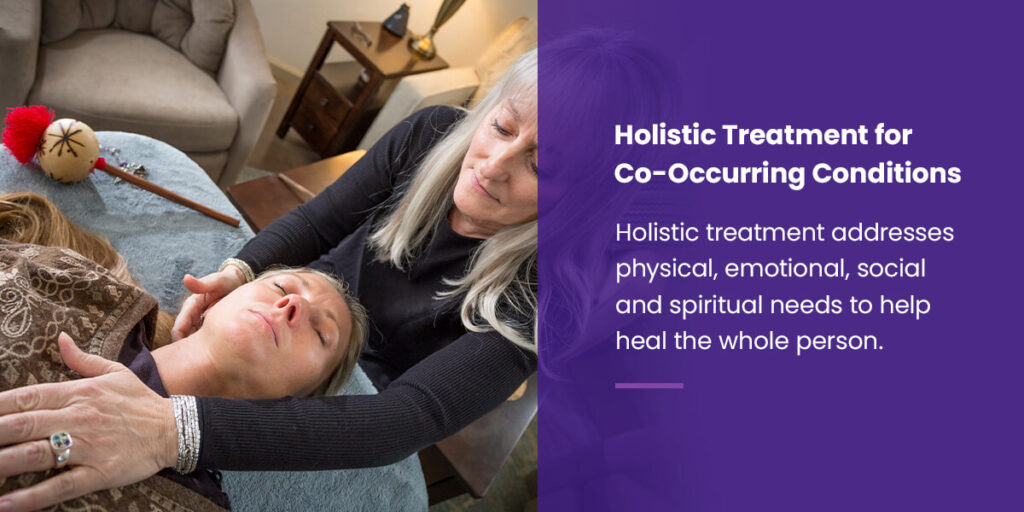
Your brain is capable of remarkable healing. Holistic treatment uncovers the root causes of addiction and mental health conditions so you can pursue peace and freedom in all areas of your life. The Sanctuary at Sedona offers holistic treatment with methods such as the following therapies:
- Exercise, movement therapy, yoga and nutrition education
- Expressive art and music therapies
- Sound therapy
- Mindfulness meditation
- Emotional self-regulation
- Ecotherapy
- Bodywork
- Creative visualization
- Acceptance commitment therapy (ACT)
- Cognitive behavioral therapy (CBT)
- Bio hacking lab
- Inner child therapy
- Eye movement desensitization and reprocessing (EMDR)
- Breathwork
- Recovery coaching
- Depth psychology
Treat Anxiety and Alcohol Use Holistically at The Sanctuary at Sedona
Alcohol and anxiety can create a harmful cycle, but incredible healing is possible. You can embark on a holistic healing journey to find peace and freedom at The Sanctuary at Sedona. The Sanctuary provides an integrative, holistic recovery program in a secluded area outside Sedona, Arizona. You can grow spiritually surrounded by Sedona’s natural beauty when you seek treatment at The Sanctuary.
As a dual-diagnosis treatment center and pioneer in the holistic treatment field, we base our multi-model integrative approach on the newest peer-reviewed science and indigenous wisdom traditions. This comprehensive therapeutical process is a transformational method that helps resolve the roots of emotional health conditions and addiction.
The Sanctuary can help you reach sobriety and heal from anxiety with an entirely new approach. Contact us to learn more and begin your path to healing.
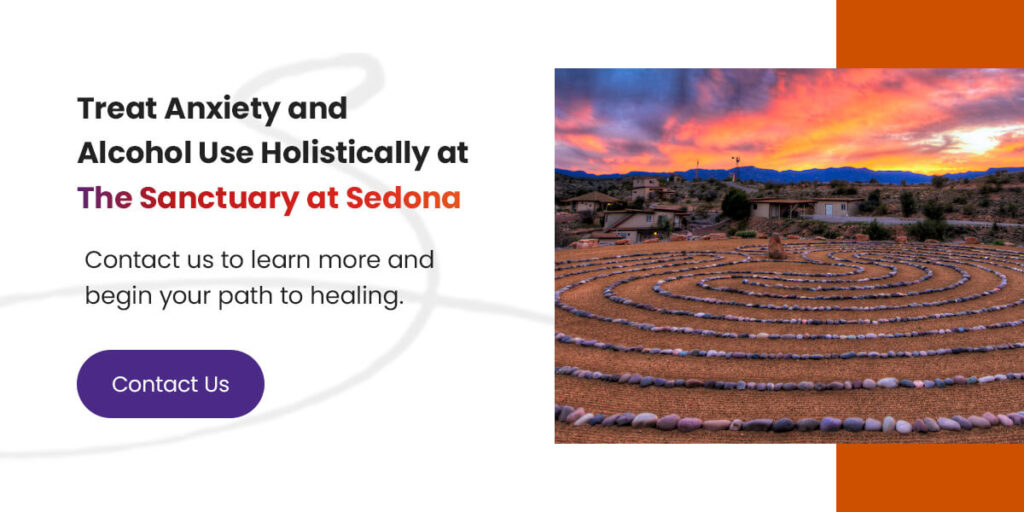
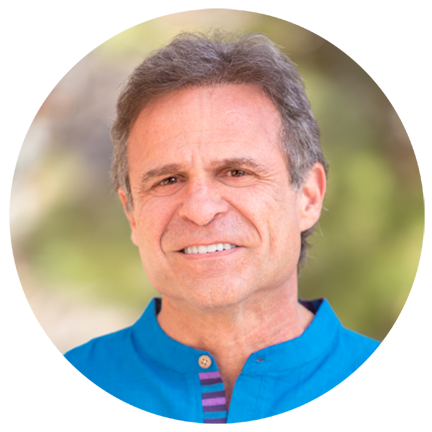
He is the Founder, Administrator, Counselor at the Sanctuary at Sedona.
He has a BA in Political Science and is currently Senior teaching staff at Four Winds Society, an international school of energy medicine. His credentials also include being an Ordained Minister; a Certified Shamanic Breathwork® Facilitator; a Founding Member Society for Shamanic Practitioners; a Member of Association for Comprehensive Energy Psychology; a Member of the National Institute for Holistic Addiction Studies. [email protected]

